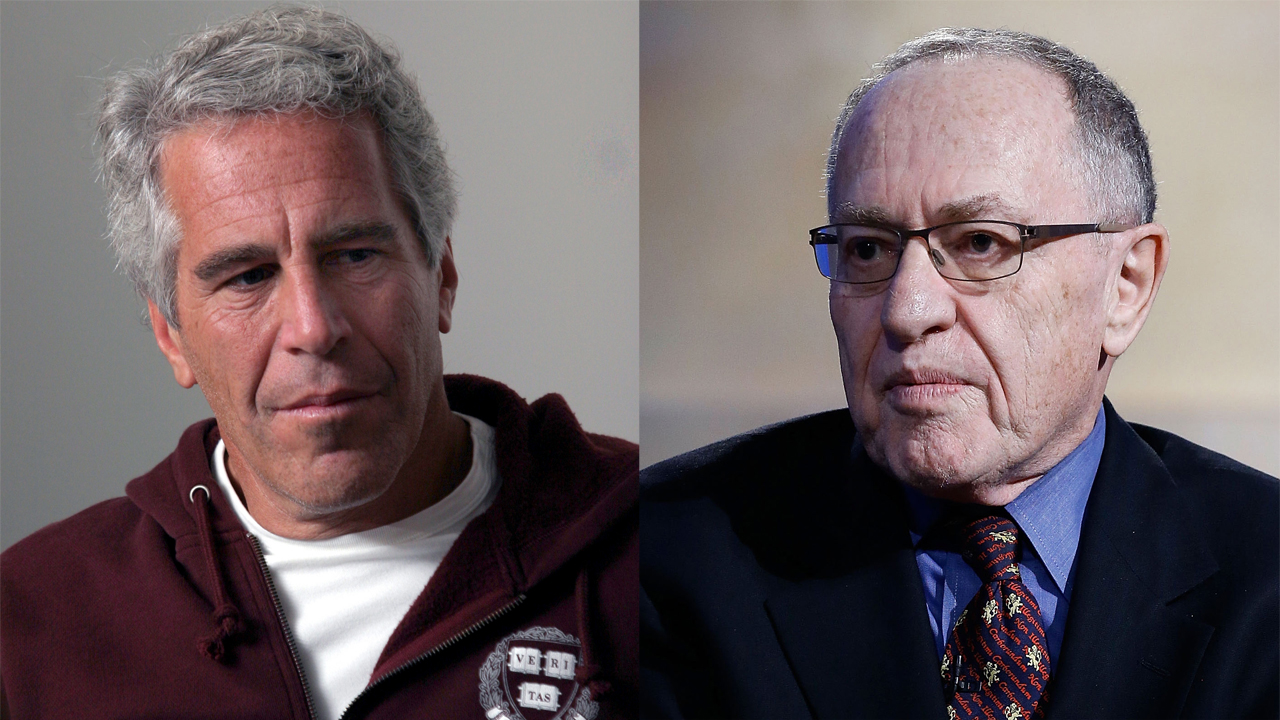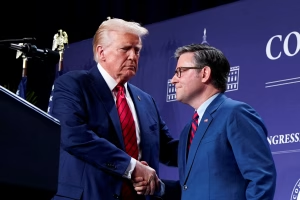Introduction
Alan Dershowitz says he’s ready to hand over documents tied to Jeffrey Epstein — documents he insists would finally “show the full picture.” But he claims a small group of federal judges keeps blocking him from releasing anything. And according to Dershowitz, those sealed filings are the exact reason the public still doesn’t know the truth.
His comments came during a tense appearance on Piers Morgan Uncensored, where he all but pleaded for permission to make the files public. Because as the political fallout grows over newly released Epstein emails involving Donald Trump, Dershowitz now says the courts — not the White House — are the ones stopping transparency.
And he didn’t hold back.
Dershowitz Pushes Back on Claims He’s Holding Back Evidence
On the show, Dershowitz spoke directly into the camera and addressed the judges themselves.
“I have them in my possession,” he said. “My lawyers have them. Judge, let me give them to Piers Morgan. I want to give them to Piers Morgan. Why are you preventing me from disclosing this material?”
He insisted the sealed documents contain “very important information” that has to be seen if the country ever wants the real story about Epstein’s network.
Moments earlier, guest Mike Nellis — a former adviser to Kamala Harris — argued Dershowitz’s files make up “only around 3%” of what’s known as the Epstein archive. He suggested the White House or Justice Department could simply release the rest whenever they wanted.
Dershowitz snapped back: “No, they can’t.”
And then he made the claim that shook the entire segment:
“It’ll never end as long as judges are sealing depositions.”
Why the Judges Matter
Several key depositions tied to Epstein — some involving associates, employees, and legal teams — remain under judicial seal in New York. Dershowitz says those sealed filings contain the context and explanations needed to understand the entire Epstein operation.
“I know what’s in those documents,” he repeated. “I know something you don’t know.”
For an attorney who actually represented Epstein, the comment landed like a grenade.
He then pointed the finger squarely at the judiciary — not at any administration, not at DOJ, not at Congress.
“It’s not the White House keeping this material from the public,” he said. “It’s the judges.”
The Political Context Explodes
His comments come at the exact moment new Epstein-related materials are flooding Washington.
The House Oversight Committee just released roughly 20,000 pages of Epstein’s estate documents. And mixed in with those materials are emails referencing Trump — comments Democrats immediately used to push their narrative that Trump was “closely connected” to Epstein.
But even those emails, once inspected, raise more questions than answers.
One 2011 email shows Epstein telling Ghislaine Maxwell that “the dog that hasn’t barked is Trump,” implying that Trump had not been questioned about a victim who supposedly spent time at Epstein’s home.
Another, from late 2018, shows Epstein calling Trump “borderline insane,” lumping Dershowitz into the same insult.
And a February 2019 message claims Trump “knew” about “it” and visited Epstein’s house “many times” — followed immediately by: “He never got a massage.”
Democrats ran with those lines as if they were definitive.
The White House called it “a selective leak” designed to smear Trump.
Dershowitz, meanwhile, insisted the emails themselves aren’t the real issue.
The sealed files are.
Why Dershowitz Says He’s Being Blocked
Dershowitz repeatedly pointed out he cannot release client-related materials unless a judge authorizes it. Epstein is dead, but attorney-client privilege still applies.
He says he’s willing to release the documents the moment the judge signs off — and only then.
But according to him, three federal judges continue to keep key files sealed. Some involve depositions. Some involve sworn statements. Some involve internal communications that have never seen daylight.
He says the country cannot understand Epstein’s network without them.
And he hinted that many assumptions people hold — on both the left and the right — may not survive once those files come out.
But until then, his hands are tied.
The Broader Fight Over Epstein Transparency
Congress is now pushing for full disclosure. A bipartisan petition is moving through both chambers demanding DOJ release everything still in government possession.
Oversight Committee members say they will continue pressing until all Epstein-related documents are unsealed, including:
-
sealed depositions
-
draft plea agreements
-
correspondence between Epstein and federal officials
-
internal FBI notes
-
unredacted island logs
Several lawmakers privately believe the sealed files may include political landmines affecting Republicans, Democrats, intelligence officials, celebrities, and foreign officers.
That’s why pressure is rising.
And that’s why Dershowitz’s public call-out of the judges struck a nerve.
Trump Continues to Deny Any Wrongdoing
Even as Democrats attempt to weaponize the newly released files, Trump maintains he had no involvement in Epstein’s crimes. He says he cut Epstein off decades ago and even banned him from Mar-a-Lago.
The White House says the new emails are “nothing more than a politically timed distraction.”
Still, Democrats are pushing ahead with hearings, media leaks, and ramped-up rhetoric — especially with 2026 fast approaching.
Dershowitz’s claim that sealed files could change the narrative only adds more fuel.
What Happens Next
Dershowitz wants the judges to act.
Congress wants DOJ to act.
Democrats want Trump pulled in.
The White House wants the leaks stopped.
But the only people holding the most important documents are the federal judges in New York.
Until those seals are lifted, only a small handful of people — including Dershowitz — know what’s actually inside.
And that appears to be exactly why this fight is far from over.

Emily Johnson is a critically acclaimed essayist and novelist known for her thought-provoking works centered on feminism, women’s rights, and modern relationships. Born and raised in Portland, Oregon, Emily grew up with a deep love of books, often spending her afternoons at her local library. She went on to study literature and gender studies at UCLA, where she became deeply involved in activism and began publishing essays in campus journals. Her debut essay collection, Voices Unbound, struck a chord with readers nationwide for its fearless exploration of gender dynamics, identity, and the challenges faced by women in contemporary society. Emily later transitioned into fiction, writing novels that balance compelling storytelling with social commentary. Her protagonists are often strong, multidimensional women navigating love, ambition, and the struggles of everyday life, making her a favorite among readers who crave authentic, relatable narratives. Critics praise her ability to merge personal intimacy with universal themes. Off the page, Emily is an advocate for women in publishing, leading workshops that encourage young female writers to embrace their voices. She lives in Seattle with her partner and two rescue cats, where she continues to write, teach, and inspire a new generation of storytellers.









